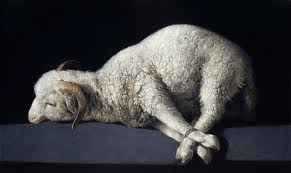“In the beginning was the Word, and the Word was with God, and the Word was God.” (John 1:1)
The other day a self-declared humanist/atheist friend tagged me in a Facebook post about the “errors” in the Bible. Rather than battle him with memes and GIFs, I offered to buy him coffee and discuss the topic in person (still waiting…). It reminded me of Charles Spurgeon’s advice to young ministers: “The way you defend the Bible is the same way you defend a lion. You just let it loose.”
 The Bible is central to our faith as you’ll hear this week in our sermon series “This is Us.” Let me quickly tell you why…
The Bible is central to our faith as you’ll hear this week in our sermon series “This is Us.” Let me quickly tell you why…
The Bible is a window on God. If you look at my truck’s windshield, you’ll see streaks and dead bugs and even a crack or two. But if you look through it, you’ll see the world beyond. If you view the Bible as just an old book, you’ll miss the world beyond. You’ll miss God’s love, forgiveness, grace, and mercy found on every page.
The Bible’s a mirror of us. Why do we need forgiveness, grace, and mercy in the first place? The Bible shows us, beginning in the third chapter, but over and over, again and again, and running throughout the millennia it describes. We see ourselves in its pages. We see our sin and our suffering, but we also see our value to God and our potential in him.
The Bible is transformation agent. And here’s the real value of the Scriptures. As we follow God’s interaction with humanity through the ages, it becomes clear that though things are very different today, nothing’s really changed. God is the same. When we read the Bible in a way where we let it penetrate our souls, the Holy Spirit uses it to change us. In 368 AD St. Augustine (a pre-saint pagan at the time) was sitting in a park in Milan, Italy weeping over the miserable state of his life. As he was “weeping with bitter sorrow in my heart,” he heard a voice tell him “Take it and read, take it and read.” “I stemmed my flood of tears and stood up, telling myself that this could only be a divine command to open my book of Scripture and read…”
He opened the Word to this: “But put on the Lord Jesus Christ, and make no plans to satisfy the fleshly desires (Romans 13:14).” Augustine describes light flooding into his heart and the darkness dispelled. He repented and gave his life to the Lord that day.
The Bible is so much more than a book – it’s a window, a mirror, an agent of transformation. Perhaps St. Ambrose (Bishop of Milan, 340-397 AD) summed it up best: “God walks in the Holy Scriptures, seeking men.”
“Lord, thou hast given us they Word for a Light to shine upon our path; grant us so to meditate on that Word, and to follow its teaching, that we may find in it the light that shines more and more until the perfect day, through Jesus Christ out Lord.” ~ Prayer of St. Jerome, translator of the Latin Vulgate, 342-420 AD.




 Loving Others
Loving Others